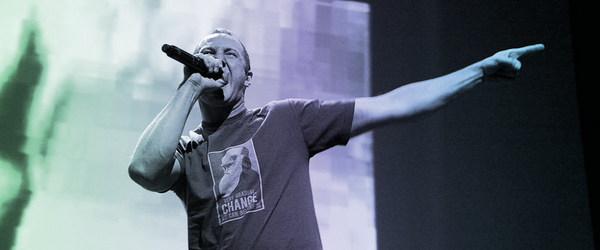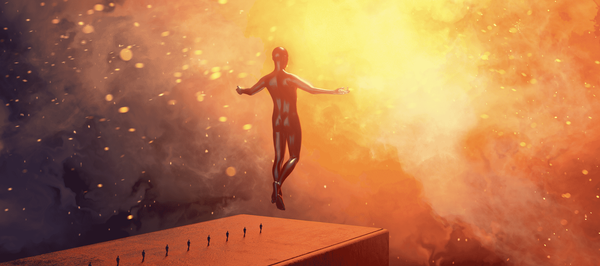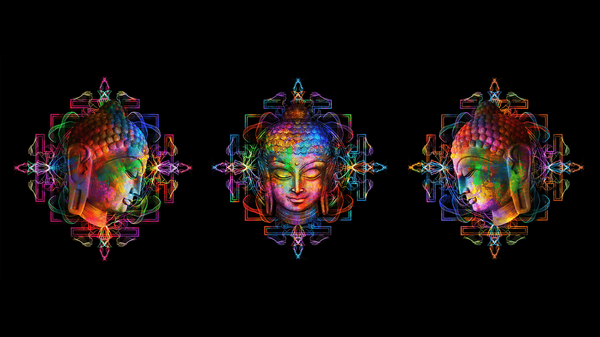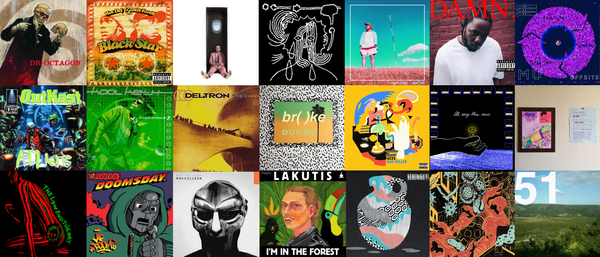Jon Waterlow • • 4 min read
Baba Brinkman Interview: The Rap Guide to Consciousness

Baba Brinkman is the only peer-reviewed rapper in the world. From evolution to climate change, medicine to religion, he spits rhymes reverberating with provocative questions, hard truths, and an irresistible humor which educate as much as they entertain.
Podcast Access:


His back-catalogue includes The Rap Guides to: Evolution, Climate Chaos, Human Nature, Medicine, and Religion, but now he’s taken things to the next level to explore the nature of consciousness itself.
At his core, Baba Brinkman is a communicator, breaking down the barriers between academic science and psychology to bring the latest research insights and theories to a wider audience. Listening to his work is like taking Human Nature 101, but with a lot more fun and memorability than any class you’ll ever take.
The Rap Guide to Consciousness is a mind-blowing tour de force, ranging from the mind-body problem to whether his young child can actually be considered conscious; and from machine intelligence to psychedelic states (including an unforgettable story of meeting an octopus in an aquarium while tripping balls on mushrooms).
Baba takes us on a journey that reveals how rap can be a vehicle for not only education, but even raising your consciousness. In his playful yet incisive rhymes, he challenges belief systems of all kinds and drills into the fundamentals which underlie them.
He’s come on a long personal journey from a pick-and-mix spirituality to hard science and now, gradually, he’s finding where the two can meet again, with an open mind and without prejudice.
What happens when you take a rap show about evolution and Darwin on tour in Bible-Belt America? Baba Brinkman opens minds through the quality of his performance and by not simply shutting people down or mocking them, and instead celebrating and sharing the excitement of science and critical thinking.
This is the same man whose Rap Guide to Religion was aimed at atheists, to show them that not all religion is automatically stupid. At the core of his mission, Baba wants to open minds and keep them open. In his rap battle against ignorance, when he wins, we all win.
I want to reach people with art rather than argument.
– Baba Brinkman
But why rap music? For Baba, rap itself is the perfect example of evolutionary principles: from the bling and violence of gangster rap to the deep bonds of trust between cliques and gangs, rap articulates some of the most fundamental, universal human instincts and experiences, from in-group out-group dynamics to selfishness, altruism, hedonism, sex and violence.
Human beings in certain contexts behave a certain way and rap can tell you all about how that works and feels in very articulate terms.
Some people would say that rap is shallow and materialistic, and I would say maybe it’s more honest.
– Baba Brinkman
This isn’t disposable entertainment: in Brinkman’s work, major global and social issues are in play, from belief systems to inequality; race tensions to climate change. There’s even a remarkable synergy between mindfulness practices and freestyling:
Mindfulness is actually a really good model for understanding how a good freestyle works. You have to be focused but open… You have to let it bubble up, and then not let it spill all over the place […] The challenge is making it present.
– Baba Brinkman
As a white, middle-class Canadian rapper, Baba’s aware that he’s a prime target for charges of “cultural appropriation”. We interrogate what that term and “authenticity” really mean in the modern, hyper-connected world. Baba’s skeptical there could ever be “absolute authenticity”, but, he says,
there is relative authenticity, so you can police the fuzzy borders and call things out that seem like blatant appropriation.
– Baba Brinkman
We also explore what the development of AI has in store for us and our understanding of, well, everything – not, Baba says, because we’ll be surrounded by super-intelligent machines, but because we could just as easily cede control of our world to buggy, incompetent machines.
And even if we work the bugs out, this explosive growth in AI means our very conception of consciousness is in flux. Baba explores philosophical and cutting-edge neuroscience experiments in The Rap Guide to Consciousness, questioning whether our ideas of and emotional connections to creativity and art will survive the seemingly inevitable Singularity.
But there’s plenty of hope in Baba Brinkman’s work, at least if we do the work to develop ourselves and keep asking questions, rather than assuming we have the answers. As he puts it:
People are superstitious by nature – I think supernatural beliefs are the default mode. It takes work to rid yourself of them.
– Baba Brinkman
But this is work we can do. For all the neuroscience and evolutionary psychology that situates us in a grid of contexts and conditions, we can still work to be our best selves at the individual and collective level.
Human nature is context-dependent, but it’s not arbitrary.
– Baba Brinkman
This is the work we can do, and Baba Brinkman is a brilliant voice providing the tools we need to put theory into practice.
We also explore:
- The neurology of freestyling
- What rap and mindfulness have in common
- Why better healthcare systems make creative men more attractive
- How your time horizons unconsciously shape your actions
- What kids can teach us about consciousness and perception










